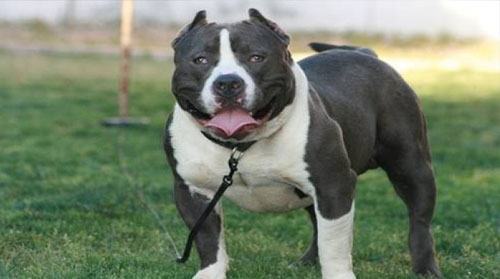Are Pitbulls Easy To Train
Are Pitbulls & Bullies Easy To Train?
The Miniature Pitbull as well as any other Bully dog can be relatively easy to train if the owner has experience with dogs, with the breed, or with training dogs. The more experienced the owner, the easier training will be. Mostly, because the dog will be able to sense their owner’s natural leadership (or lack thereof).
Therefore, if the owner is experienced, strong and displays leadership, then the dog will sense it, and respect it. However, if the owner has never been around dogs, has never trained dogs or is naturally uneasy with the breed then the dog will sense it. They will feel the owner’s weakness and become willful, destructive, and attempt to promote himself to Alpha Dog.

They are one of the many breeds that are eager to please their owners and will, therefore, demonstrate any behavior that they are taught, or that they are rewarded for. For example, if they are trained to sit, stay and roll over and they are rewarded when they perform these acts upon command, then they will continue to deliver them. In the same light, if the dog is not scolded for chewing up a pair of shoes then they will not comprehend that the behavior is not warranted and will, therefore, continue to chew on various pairs of shoes.
The positive actions you want your dog to display should always be rewarded, and the negative behaviors should always be scolded. It is important that the entire family dynamic is aware of the rules and that they stick to them. Unity is key when training a dog of any breed. If a family member is more lenient with the dog and doesn’t scold the negative behaviors, then the dog may become confused and may not understand what the rules are.
The breed can be stubborn and desire independence. They can also become willful and destructive. These are all potential traits that can arise if the dog is not trained properly, if the owner is weak, and if the dog is not properly socialized as a puppy. If any of these things are the case in your situation, then you may want to consider enrolling your new Miniature Pitbull puppy in Puppy Boot camp or getting him a professional dog trainer.
Both options will help your puppy be properly trained and socialized which will help control negative behaviors and aggression. Both of these properties are essential for a well-rounded dog of any breed. Socialization and training will ensure that your puppy will grow up to be a well-mannered, respectable, well behaved and overall loving dog that will love you, be loyal to you, and defend you to the very end. Training, socialization, and allowing your Pocket Pit to demonstrate his loving nature are all the ways to create a best friend for life.
Barking Tendencies: How often will a Pitbull bark?
Even the most loving dog people can get a little irritated when their pup has a tendency to cry excessively. It is only natural to wonder if a particular breed is more or less likely to bark and howl. Maybe you live in an apartment complex, duplex or in a neighborhood where the houses are very close together, and you do not want your dog to bark without reason and disrupt your neighbors.
If this is your situation, then you may want to avoid smaller dogs such as the Pomeranian, Chihuahua or Shih Tzu. These dog breeds and most small dogs have a tendency to “yap” without apparent reason and can become incredibly irritating for owners and neighbors alike.
Larger dogs are less likely to bark because they are usually better watchdogs. This means that they instinctively bark when there is a stranger, danger or threat approaching their territory or their family members. This is the case with the Pitbulls.
They are naturally good watchdogs because of their Patterdale DNA. They are most likely going to bark with the intention of alerting their owners of a threat or intruder or, to warn the threat or intruder to leave the premises. They are not a yappy breed and will therefore only bark when it is necessary. The Pocket Pit has also been described as being an occasional barker.
